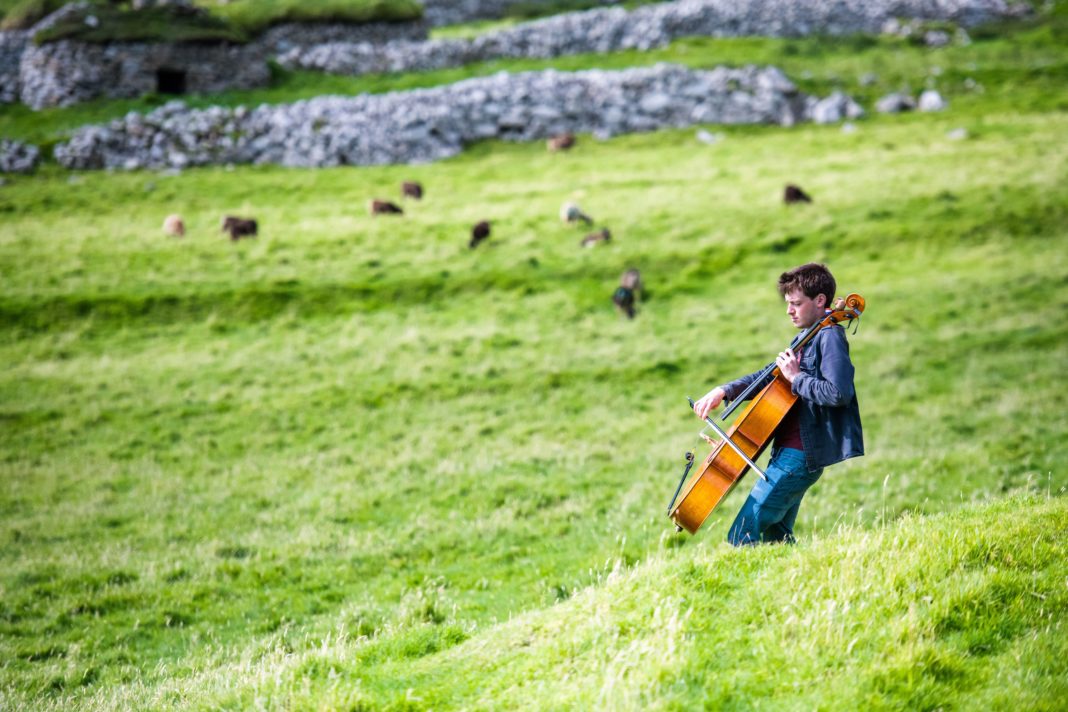Set up during the pandemic, the Scottish Classical Sustainability Group (SCSG) is putting the welfare of our planet in the spotlight with the launch of its first-ever Scottish Classical Music Green Guide.
Given the events of the past eighteen months, both in terms of how the COVID-19 pandemic has made us reconsider our impact on the environment, and the natural disasters – from floods through to wildfires – that we have witnessed taking place across the globe, the issue of environmental sustainability has been top of the agenda for many, and not least Scotland’s musical sector, who have come together to discuss how they can reduce the impact of their work on the planet.
The SCSG brings together more than 30 of Scotland’s music organisations, alongside Creative Scotland, Creative Carbon Scotland, Musicians’ Union and Association of British Orchestras (ABO) and was set up in July 2020 by Nevis Ensemble and Scottish Ensemble. On 28 July 2021 it launched its first ever Scottish Classical Music Green Guide.
Aimed at changing behaviours not only in organisations, but in individual musicians and audiences across the country, and for both professional and leisure-time ensembles, the guide is the culmination of discussions around how the sector can best address the Climate Emergency as we aim for a Net Zero society. Established in the midst of the COVID-19 pandemic, the work of the SCSG has already seen it win the Environmental Sustainability Award at the 2021 Scottish Awards for New Music hosted by New Music Scotland.
The Green Guide, building on the 2010 Green Orchestras Guide, put together by the ABO, Julie’s Bicycle and Orchestras Live, shares ideas, knowledge and tips on how organisations can engage with staff, musicians and audiences, but also on how individual musicians can exert influence, whether as freelancers or as part of a larger organisation.
Examples of best practices from across the Scottish classical sector, including Royal Conservatoire of Scotland, Drake Music Scotland, Live Music Now Scotland and the National Youth Choir of Scotland are also highlighted.
The guide ends with a series of pledges from members, detailing actions they plan to take in the next twelve months to concretely reduce their emissions. Actions include stopping all staff flights within the UK, engaging international promoters in discussions about how the greater costs of more sustainable land travel can be covered when planning tours, and replacing one-off performances from international guests with longer residencies.
William Norris, Interim Chief Executive at Scottish Ensemble, said: “We are hugely proud of the way in which Scotland’s ensembles, orchestras, organisations and musicians have come together to put the health and sustainability of our planet centre stage. Particularly after a year to eighteen months of huge instability and insecurity for everyone within the sector, and indeed across the world.
This guide represents our collective commitment to ensuring best practice not only within our own organisation, but with the other organisations, individuals and audiences we engage with on a regular basis, and we really hope it helps others as much as us.”
Ben Twist, Director of Creative Carbon Scotland says, “We’ve learned a lot from seeing how the members of the Scottish Classical Sustainability Group have collaborated over the past year, even during the exceptionally difficult circumstances that the COVID-19 pandemic has presented for those working in the arts. This detailed guide is testament to the group members’ commitment to playing a part in addressing climate change, their ability to share and learn from each other, and the growing environmental expertise that they are developing within the classical music sector.”
Gavin Reid, Chief Executive of the Scottish Chamber Orchestra says “With the climate emergency and issues of global sustainability ever-present in our minds, this comprehensive guide for the orchestral sector is a vital touchstone which will help inform our collective thinking, planning and knowledge as we work towards a sustainable musical future.”
Scott Crawford Morrison of the Scottish Classical Sustainability Group says “We are thrilled to launch this Guide, which we hope will be used not only by organisations, but also by individual musicians, whether professional, student or leisure-time. As music organisations and individuals, we pride ourselves on having close relationships with our communities and audiences – let us also make full use of the amazing power of culture to inform and transform thinking, and work collectively to reduce the emissions associated with our current ways of living and working.”
The full Scottish Classic Music Green Guide 2021 can be found on the Creative Carbon Scotland website here: https://www.creativecarbonscotland.com/scottish-classical-music-green-guide-released





